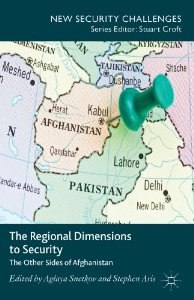(Carnegie Corporation) Finding ways to mend the U.S.-Russia relationship requires a clear understanding of the benefits it can bring to both sides. Moscow and Washington need to rethink their expectations about potential gains from mutual engagement. Unmet expectations have repeatedly led to crises in relations between the United States and Russia. And yet trimming expectations down does not necessarily mean preparing for confrontation.
Significant reassessment of the prospective gains has to occur on the Russian side. Understood as bargaining, pragmatism has repeatedly failed Russia as the foundation for its relationship with the United States. History has shown that, short of a formal alliance, engagement with the United States can only bring two long-term benefits. First, trade with and investment from the United States can foster economic growth and social development in the counterpart country. In order to fully profit from this opportunity, the counterpart country needs to put in place a system that guarantees the safety of U.S. investment and reasonable predictability of legal changes. In the absence of robust institutions and the rule of law, American businesses would seek to minimize payback periods while most of their investments would remain short-term and/or speculative.
The second long-term benefit can be derived from reducing the danger of a direct military confrontation with the United States. As a result, the counterpart country would be able to economize on defense expenditures and often also expand economic ties with the United States. In the U.S.-Russia case, nuclear weapons reductions hold out the promise of substantial budget savings for both sides, should the two governments exercise the necessary political will. (To put this argument on its head, the United States, as the most powerful nation, can also be conveniently cast as an enemy, helping to justify increases in defense spending.)
These opportunities are not hard to identify. What is more difficult to realize is that neither economic interdependence nor mutual security arrangements are likely to give the counterpart country (with the possible exception of China) additional leverage over Washington. The United States is reluctant to engage in great-power bargaining to reward its partner for an agreement on other issues. This largely results from the constraints placed on the executive branch by the Congress in foreign policy. Washington is unlikely to sacrifice its interests in one area for gains in another—this is why Russia’s calls for “respecting mutual interests” (for example, in post-Soviet Eurasia) usually do not go down well among the U.S. policymaking community.
What Russia seeks to achieve through “pragmatic bargaining” with the United States on the basis of “respect for each other’s interests” can often be obtained by showing to the United States why conflict over a certain issue does not serve U.S. interests. It is much easier for both sides to assert their interests and ask for respect than to rationally identify the losses that both sides (and usually other actors as well) incur from confrontation by default. The U.S.-Russia dialogue needs to be disentangled from unproductive debates on whether the world is better off unipolar or multipolar and focus on what is lost in concrete cases by the sides opposing each other for no good reason.
In a similar vein, the United States should acknowledge that its own interpretation of what actually constitutes Russian interests does not always correspond to the view popular among the Russian public and policymaking community. For example, on many international and global issues Russian diplomacy is by default much more committed to the existing status quo than may seem reasonable to Washington. However, the Russian posture is largely defined by deep-seated fears of “destabilization” and “unpredictability” that are rooted both in recent Russian history and widespread convictions among the country’s political community. Making the benefits of change clear to the Russian side through persuasive arguments can work better than attempts to isolate Moscow or paint it into a corner. The United States could also use Russia’s uncritical attachment to the status quo for gauging the viability of Washington’s own ideas and initiatives.
The U.S.-Russia relationship is important to both sides because of its significant unused potential. It would not be difficult to turn it into a positive-sum game in many cases if the bargaining paradigm is dropped and impartial analysis is undertaken of the unnecessary losses from conflict. At the end of the day, the U.S.-Russia relationship is not about status, but about addressing a concrete, even if limited, number of international issues to mutual benefit.
Mikhail Troitskiy is a member of PONARS Eurasia and an associate professor at the Moscow State Institute of International Relations.
© This post is part of the Perspectives on Peace and Security: Rebuilding the U.S.–Russia Relationship project produced by Carnegie Corporation of New York, in partnership with the Carnegie Moscow Center.











